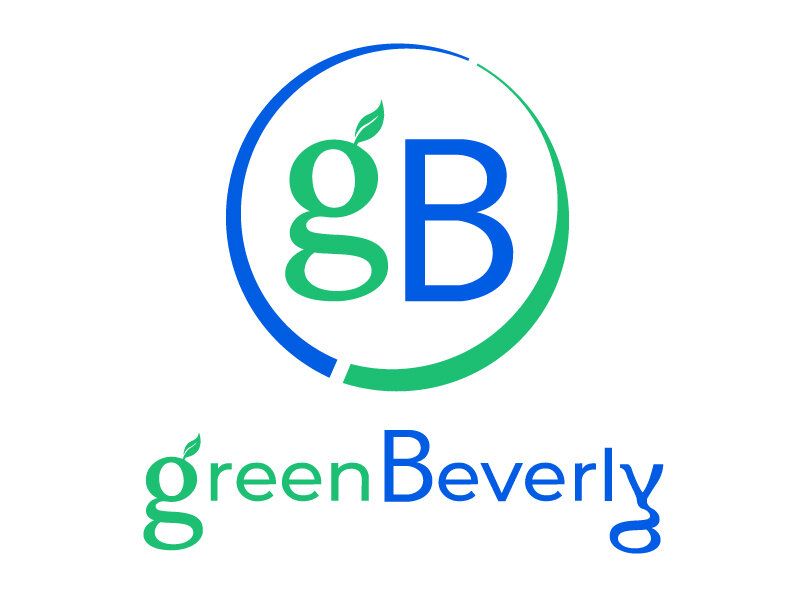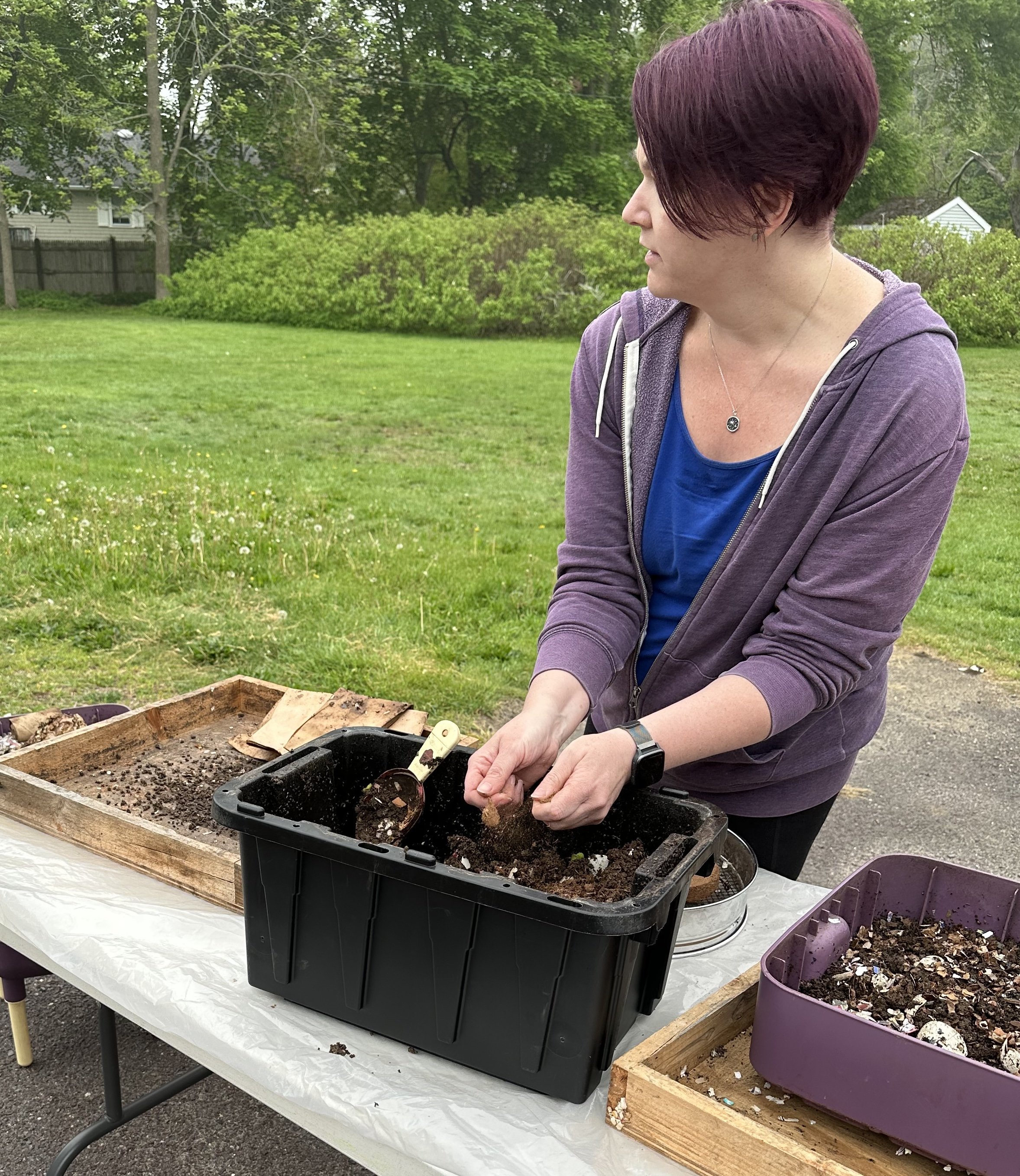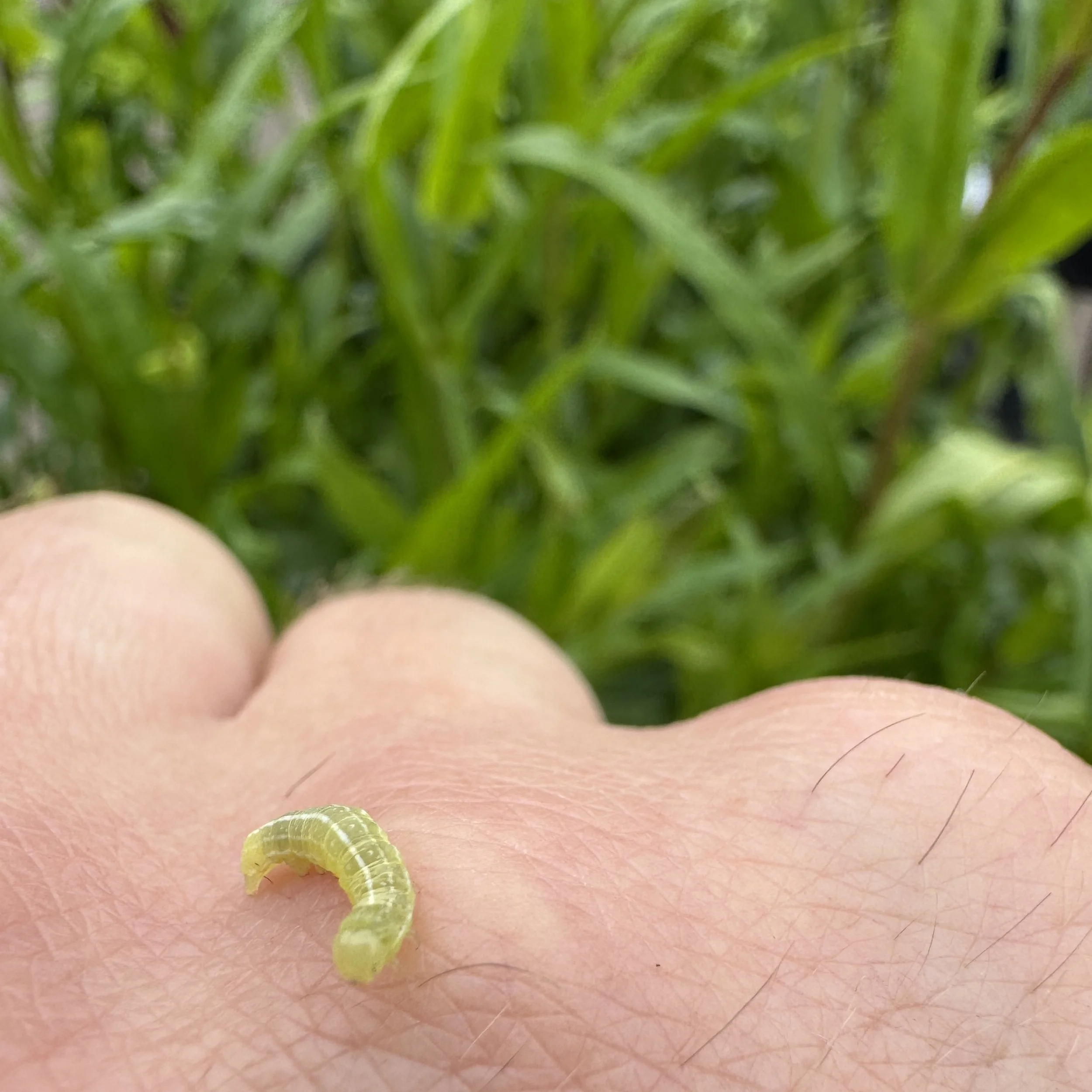2025 Native Pollinator Plant Giveaway Weekend
May 17-18, 2025 | By Brett Otis & Alastair Cox, Pollinator Project 2025 Co-Leads
What a wonderful native pollinator plant-filled weekend! Read on for some event highlights and links to next steps if you received one of our kits.
Kit Giveaway Day 1
Bright and early Saturday morning, Corliss Brothers pulled up to the Cove Community Center with a truckload of over 800 plants. After setup, our awesome team of volunteers helped hand out pollinator kits and signs, and answered questions about the selected plants: Beardtoungue, Swamp Milkweed, Wild Bergamot, and New England Aster (see the end of this post for info on each). We were also fortunate to have Beantrust’s Erik Modahl serving excellent coffee, and Linzy Bailey demonstrating vermiculture—the practice of using worms to convert organic matter into nutrient-rich compost.
We had quite a showing—at times the line of attendees was over 60 people deep! Thanks to your interest and support, we ended up distributing more kits than planned, so we picked up some extra plants for Day 2…
Our Growing Demonstration Gardens
Later that afternoon, a team of volunteers installed the first plants at the new Cove Community Center Pollinator Demonstration Garden! Stay tuned for more on this educational space, community hub, and living example of what’s possible with native plants.
Meanwhile, another team was over at Dane Street, tending to—and expanding—our original demonstration garden. Next time you’re at the beach, be sure to stop by and check out all the progress.
Kit Giveaway Day 2 and Plant Swap
On Sunday we hopped the Bass River to join the Plant Swap at Obear Park—now in its third year thanks to co-organizers Jordan and Allie Stutt. It didn’t take long before the pavilion was filled with a variety of seedlings, houseplants, and seeds ready for swapping! Beantrust was back with plenty of beverages, and we were also lucky to be joined by Cheryl Rafuse, a native plant expert with Plant Magic Gardens. After the swap, a group of attendees enjoyed a wild edibles walk with Green Beverly Coach, Iris Weaver.
As for our giveaway—thanks to your interest and our helpful team of volunteers—the kits didn’t stick around for very long! As a bonus, we handed out nearly 100 raffle tickets and 15 lucky winners received a tray of additional native plants from North Shore Natives.
Happy People, Happy Pollinators
In total we distributed 1,100 plants, 200 signs, and met so many wonderful community members of all ages ready to support butterflies, bees, moths, birds, insects, and other pollinators through this summer and for years to come.
If you received a kit, check out next steps below as you get planting. If you didn’t, there are plenty of other ways to engage with this year’s pollinator project, including our rebate program for new gardens and our growing pollinator pathway map.
If you picked up a kit at one of our giveaway events, here’s what you can do next:
Get your plants in the ground! Details about each of the four plants in the kit can be found below.
Growing a bigger garden? We’re also offering up to $500 in rebates for new pollinator gardens that meet our size and native plant criteria. Check your eligibility and apply!
Install your snazzy new yard sign to show your commitment to supporting local pollinators (Note that the signs do have a protective coating sticker on the back—feel free to peel that off when you install it at home!).
Add your garden to the Beverly Pollinator Pathway Map. Help us reach our goal of identifying at least 300 native gardens for safe pollinator travel.
Avoid using pesticides, learn more about pollinators, and keep an eye out for other Beverly Pollinator Project activities throughout the summer at greenbeverly.org/garden.
Plants in the Kit
Learn more about the four plants included in your giveaway kit, including favorite growing conditions, growth habits, bloom timing, and some of the pollinators they support. Information courtesy of The Monarch Gardener.
Beardtongue (Penstemon Digitalis)
Full sun to part shade; Up to 3’ tall; Pale pink to white flowers late May-June; Soil: Medium to medium-dry; Growth habit: Clumping.
Host to 9 species of moths and butterflies! Learn more about this plant from The Monarch Gardener.
Swamp Milkweed (Asclepias Incarnata)
Full to part sun; 36”-48” tall; Pink flowers in June and July; Can tolerate wet conditions; Growth habit: Clumping, self-seeds.
Host to 12 moths and butterflies! Learn more about this plant from The Monarch Gardener.
Wild Bergamot (Monarda Fistulosa)
Full to part sun; Up to 4’ tall; Lavender flower July-August; Soil: Wet to dry; Growth habit: Self-seeds.
Host to 11 species of moths and butterflies! Learn more about this plant from The Monarch Gardener.
New England Aster (Symphyotrichum Novae-Angliae)
Full to part sun; Up to 5’ tall; Purple flowers September-October; Soil: Medium-wet to medium-dry; Growth habit: Clumping, self-seeds.
Host to 10 species of moths and butterflies! Learn more about this plant from The Monarch Gardener.





















